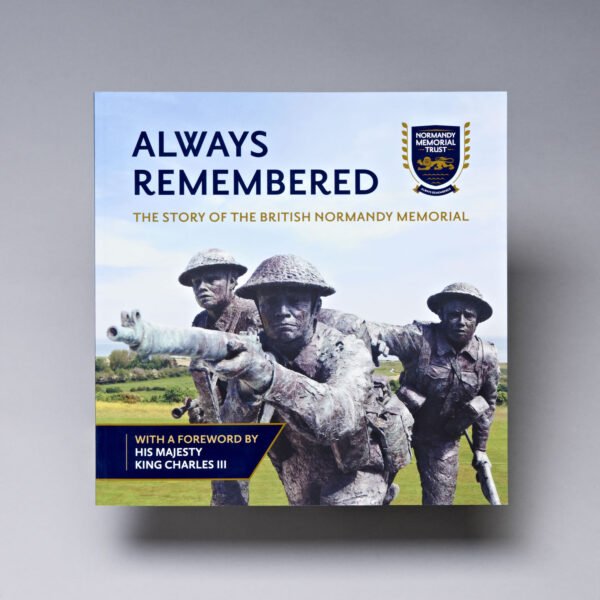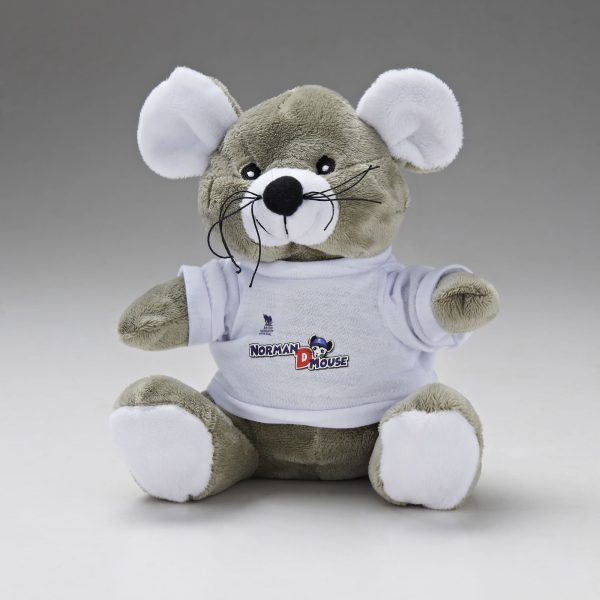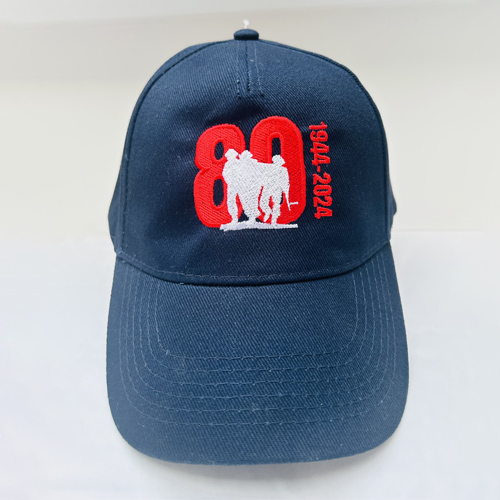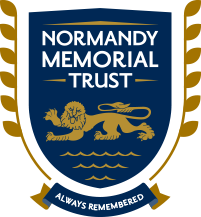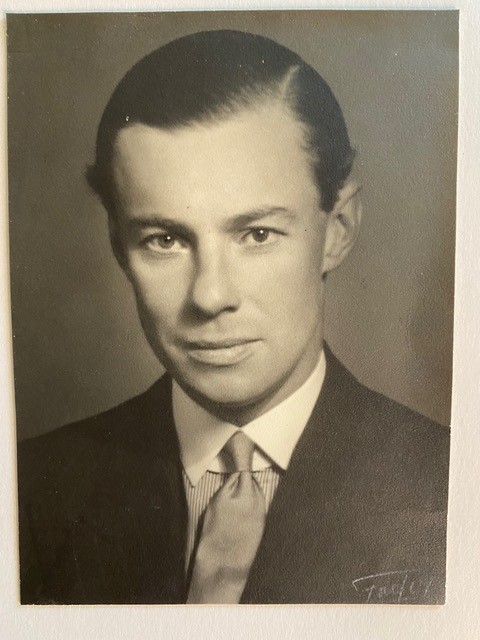
Johnny Fass #2
This story and photos are shared by the Trust with kind permission from Serena Fass, daughter of Johnny Fass. In the story she talks about remembrance of her father.
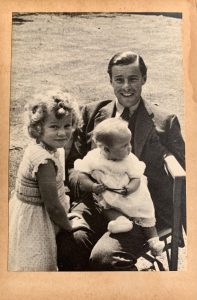
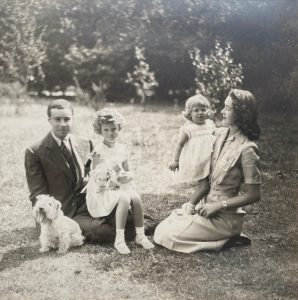
Left photo: Johnny Fass with his daughters, Serena (standing) and Virginia (on his lap), Sonning, summer 1943
Right photo: Johnny Fass, his wife, Elizabeth,Serena and her sister, Virginia on the eve of the Normandy invasion
At the Remembrance Sunday lunch in Wellington Barracks in 1989, Charles Guthrie asked me if my brother might be willing to give the address the following year. I told him that he was always busy with Remembrance Day commemorations in Edinburgh (where he then lived) but if he would like me do so in memory of our father, I would be honoured to do so.
Charles and three other officers withdrew into a back room to discuss the thought of a girl giving the address - as yet unheard of for the Welsh Guards. They did not take long and came back to say that they would be delighted but made me promise not to speak for more than 10 minutes. I gave Charles my assurances and began to plan what I would say. I had a year in which to do so!
A perfect occasion occurred when I was in Wales staying with Robin Gibson-Watt (who was my bother's fag at Eton), to ask his father David, (MC and two bars, later Baron Gibson Watt) who was MP for Hereford. He had been my father's Welsh Guards ADC in Colchester in the early days of the war). Both David and his brother, Andrew, had given previous Welsh Guard addresses on Remembrance Sunday and knew what I faced. Robin took me to have dinner with his father who said that I should start my address in Welsh as many guardsmen would be coming from the valleys, and to start with 'Annwyl Gythion, mor braf yw bod gyda chigef'.
At a Welsh Prayer breakfast in Wrexham later that summer I met a kind lady from Aberystwyth University who had taught Prince Charles Welsh and she made a tape with the Welsh greetings that David Gibson-Watt suggested that I start with and I played it in my car on every journey until I knew them by heart. Richard Hawkins insisted that I must not sound as if I was speaking a foreign language, it must sound completely natural. So imagine my friends' astonishment when I began my address in Welsh!
The Prince of Wales walked me over to the chapel and I sat immediately behind him and the Guthries. He commented on my perfect Welsh afterwards and was most amused when I told him the story. This is what I said:
Annwyl Gythion, mor braf yw bod gyda chigef.
Dear Friends, how good it is to be with you today.
As you can see I have no chest full of decorations or distinguished reason for addressing you
today - other than being the eldest child of Johnny Fass who was killed commanding the 1st
Battalion, Welsh Guards on June 30th 1944. He was 33.
My father landed in Normandy on June 18th, part of the Guards' Armoured Divisions' great
reinforcements after June 6th. He had been one of the 140 British and American soldiers on
the D-Day planning staff in Norfolk House, just across the park in St James' Square. For those with a sense of history, June 18th was the anniversary of the Battle of Waterloo in 1815.
As it was Sunday, the Welsh Guards' padre invited my father to read the lesson on the beaches where they had just landed. He read the Epistle for the 3rd Sunday after Trinity - the one you have just heard today.
At very much the same time, 600 or so friends, wives, relations, and soldiers serving in the Brigade of Guards, gathered in this chapel and heard the same lesson. Minutes later a bomb fell destroying all but the golden apse and tragically killing 121 members of the congregation. Their names are engraved on the west wall of this new Chapel, and we remember them too in our prayers today.
How extraordinarily appropriate was that Epistle of St Peter to those gathered on the
Normandy beach: preparing for the task ahead and the inevitable sacrifice of many of them
who laid down their lives to achieve their goal. My father spent 12 days in Normandy, full of
incident - and as he wrote in a letter to my mother, the all-pervading smell of dead cows and
horses. On June 30th at lunch-time, he received the personal news he had been waiting for:
my mother had given birth to a son, and he celebrated with his friends.
A few hours later, as he sat on the edge of his trench, glass of whisky in hand, shrapnel from a German shell hit him in the head. Those to his left and his right were injured - but, for my father, death was instant. His body lies with his men in the beautifully maintained St Manvieu cemetery at Cheux, shaded by trees.
Many of us here will have fathers, husbands, brothers, sons, whose names are carved with pride in stone and wood in diverse places. My father’s name is at West Downs Preparatory school; Rugby; Sandhurst; the parish church at Sonning where we then lived; at Inkpen where his parents lived - in each place his name joining a long list from the Great War. At Inkpen the inscription reads "In humble thanksgiving to Almighty God who delivered our country from great peril, and in grateful memory of the men who gave their lives for the cause".
Here too is a beautiful stained glass memorial window depicting St Michael in full armour.
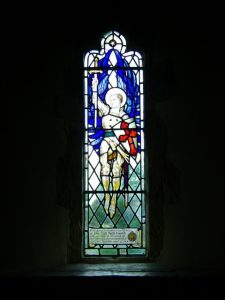
Memorial window to Johnny Fass, erected by his parents Sir Ernest and Lady Fass in St Michael's Church, Inkpen, Berkshire
And, of course, his headstone in Normandy.
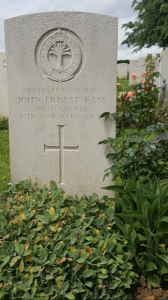
“When Johnny came through the door, his smile lit up the room". Many still remember that smile, the laughter and the gift of making life fun for everyone he met. May we, in due season, be reunited with them in that perfect place with the Prince of Peace himself, our Lord and Saviour Jesus Christ.
Boed i’ r Arglwydd eich bendithio a’ ch cadw a rhoi i chi Ei clangnefedd - May the Lord bless
you and keep you and give you His peace. Amen.
The Prince of Wales was hugely supportive and was crying right under my nose, sitting next
to Charles Guthrie who was also crying! 60 years from the anniversary of his death we dedicated a plaque to my father in the Welsh Guards's bay in the chapel with the Prince of Wales, Charles Stephens and the Regimental Padre.
Jonny Fass' grave
I have a nice half Polish-half French friend, Ladislas Ciechnowski who lives in a nearby chateau [close to the cemetery Johnny is buried in], who gave me lunch after I had put a jar of my mother’s ashes in my father’s grave – illegal, but I got away with it to fulfil her wishes. My sister Ginny and my brother Michael have also been, but we have never been as a family.
Sadly the last of my father’s young officers, 95 year old Coldstreamer Sir Julian Paget has
died, but when I gave the Welsh Guards address in 1999 many of them were still alive, led by
Sir John Miller who was beside him when he was killed, and Sir Bevil Stanier Bt brought up
soldiers to meet me who had come from Wales in the coaches; they were also there with him
and remembered his death: that was very moving. Two of them return every year to plant a
cross and lay red roses on his grave.
On D-Day 75 Richard Bostock, (Welsh Guards) and Edward Macfarlane (Coldstream Guards) drove to St Manvieu, planted a red rose on my father's grave and conducted a short ceremony followed by 2 minutes silence at the end of which a Dakota C47 flew over which seemed most fitting.
British Normandy Memorial - Additional Information
You can find out more about Johnny Fass' service history in this story sent in by his son, Michael Fass
FALLEN HEROES
JOHN ERNEST FASS
Army • LIEUTENANT COLONEL
Welsh Guards
1st BattalionDIED | 30 June 1944
AGE | 33
SERVICE NO. | 49851
FALLEN HEROES
JOHN ERNEST FASS
Army • LIEUTENANT COLONEL
Welsh Guards
1st BattalionDIED | 30 June 1944
AGE | 33
SERVICE NO. | 49851




